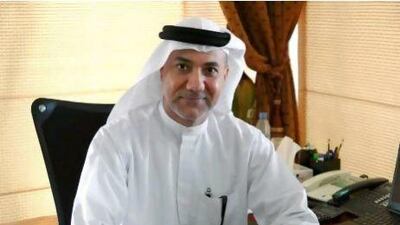DUBAI // Fund-raising is under way to build Dubai's first orphanage, a Dh140 million project inspired by a call for charitable proposals on Twitter.
Dubai's Awqaf and Minors Affairs Foundation (Amaf) devised the plan after Sheikh Mohammed bin Rashid, Vice President and Ruler of Dubai, requested ideas for Ramadan initiatives.
The "Family Village" was one of thousands of suggestions relayed to Sheikh Mohammed on Twitter.
The design features 12 villas that could house 100 orphaned and abandoned children, cared for by staff "mothers" and "aunties".
It will provide a home for dozens of children who live in Latifa Hospital, said Tayeb Abdulrahman Al Rais, Amaf secretary general.
In July, Sheikh Mohammed asked Amaf to start implementing the plan immediately.
Once the money is raised, Mr Al Rais estimates it will take up to 18 months to build the facility, most likely in Al Warqa.
“Quite frankly I wasn’t expecting for it to happen so soon and so fast,” he said.
In addition to managing Dubai’s religious endowments, Amaf supports more than 2,500 orphans –children who have lost one or both parents.
Many are cared for by extended family members. But some children have no one, while others were abandoned outside mosques or homes.
About 50 such children live at Latifa Hospital, Mr Al Rais said. The orphanage would serve these children and others in similar situations.
“We don’t want these kids to be raised to feel they are abandoned,” Mr Al Rais said. “They are our children, my girls and boys, and we will raise them as part of the community.”
The emirates of Abu Dhabi and Sharjah already have government orphanages, and there is a federal facility planned for Umm Al Quwain. However, there is no orphanage in Dubai.
A baby abandoned earlier this year was sent to the Dubai Foundation for Women and Children, a shelter for victims of abuse and human trafficking, Mr Al Rais said.
The Family Village plan calls for a “grandmother” director who oversees the “mothers” and “aunties”. One of the 12 villas will be a guesthouse for potential parents to visit and meet children.
“The idea is to have these kids adopted into proper families,” Mr Al Rais said.
He hopes enough families come forward to create a waiting list.
“I would love to see an orphanage without an orphan,” he said.
Abandoned children cannot be legally adopted under Sharia, but they can be cared for through permanent fostering relationships that are similar to adoptions.
Only Emiratis can take in abandoned children, who receive UAE nationality.
This summer the President, Sheikh Khalifa, issued a federal law to create a standardised system for such children, according to Wam, the state news agency.
Because the law has not yet been implemented, Amaf is devising its own plan, Mr Al Rais said. “Our main objective is not to have an expensive building, but to have proper policies, procedures, regulations.”
Sheikh Mohammed has allocated land for the project, Mr Al Rais said.
The Dh140m fund-raising goal includes the costs of building and endowing the facility, expected to contain a clinic, a nursery, a playground and a garden.
“It’s expensive,” Mr Al Rais acknowledged. “It’s Dubai. We cannot build a barracks.”
The project includes an endowment so the orphanage will not depend on future donations, said Mark Evers, executive director of EFI International, a consulting firm involved with the project.
Mr Evers estimated it will take “months, not years” to reach the fund-raising goal.
“If the people of Dubai and especially those who are of means are very generous, we don’t think it will be very long,” he said.
Donors have already sponsored five of the villas, Mr Al Rais said.
Amaf has set up an account with Noor Islamic Bank to receive donations.
People who wish to donate can contact Amaf's call centre at 04 366 2111 or visit their website for more information.
vnereim@thenational.ae

